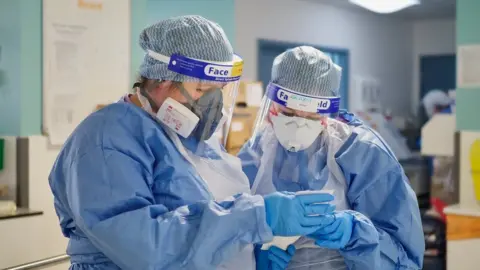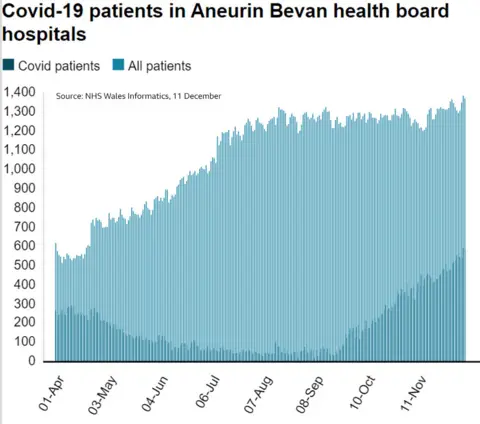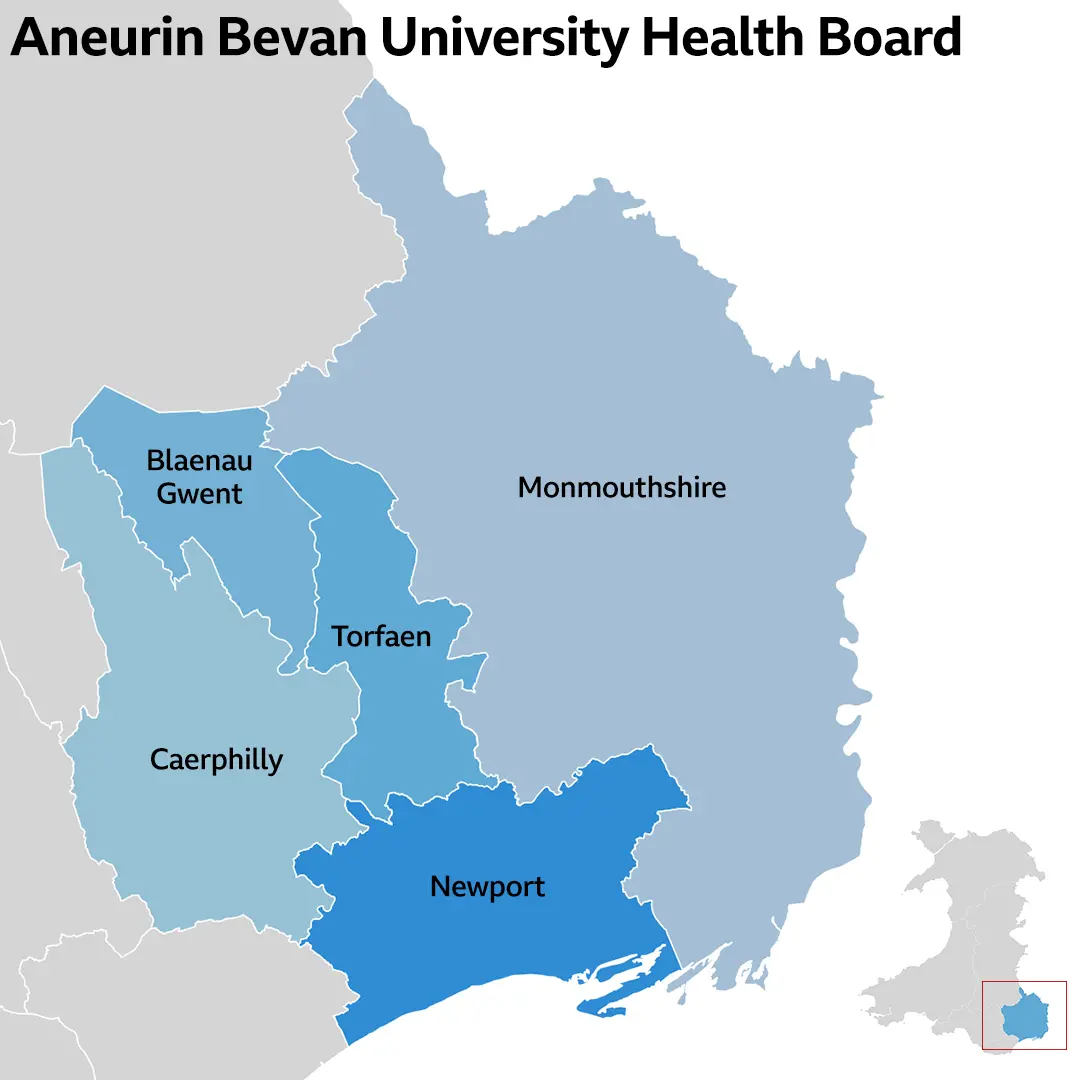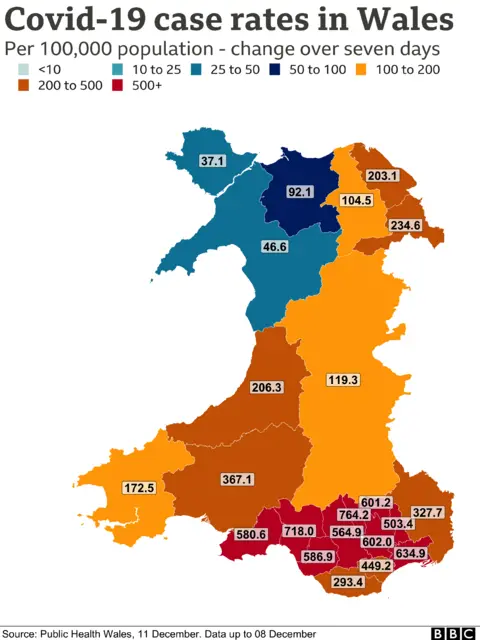Covid Wales: Aneurin Bevan health board halts non-urgent care
 Nick Mason
Nick MasonAn under-pressure health board says it has been forced to postpone all non-urgent care as Covid cases increase.
The Aneurin Bevan University Health Board said it was halting outpatient appointments and non-urgent planned surgery from Monday.
The weekly infection rates across the five south Wales counties in the health board are averaging 534 cases for every 100,000 people.
The health board also has the highest number of patients with Covid, at 586.
The board covers Newport, Caerphilly, Torfaen, Blaenau Gwent and Monmouthshire.


Newport has the third highest weekly infection rate for Covid-19 in Wales, at 634.9 cases for every 100,000.
Both Caerphilly and Blaenau Gwent both just tip over the 600 cases per 100,000 mark.
Public Health Wales recorded eight deaths of people with Covid on Friday, the highest for the day in Wales.


In a statement health board officials said: "This decision has not been made lightly, however, the increasing transmission of Covid-19 within our communities, together with the usual winter demand on our emergency care is having a significant impact on our ability to provide normal services."
From Monday, it said it would be making the following changes to services:
- All non-urgent outpatient clinics will be postponed
- All non-urgent planned surgery will be postponed.
- Rapid and risk-assessed discharge of all medically fit patients who no longer need hospital care


The health board stressed that cancer services and clinically urgent patients will continue to be seen, and cancer surgery and operations for clinically urgent conditions will continue.
Radiology and endoscopy services will continue unchanged, as will heart condition services.
Officials said the Covid-19 programme that is now underway will also continue.
"Our child and adult mental health services will not be affected by these changes," they added.
The announcement follows a warning from First Minister Mark Drakeford that stricter restrictions will be introduced if Covid cases continue to rise.
"Our NHS will not be able to cope if we continue to see this level of coronavirus-related admissions in the coming weeks, on top of the normal winter pressures," he said.
